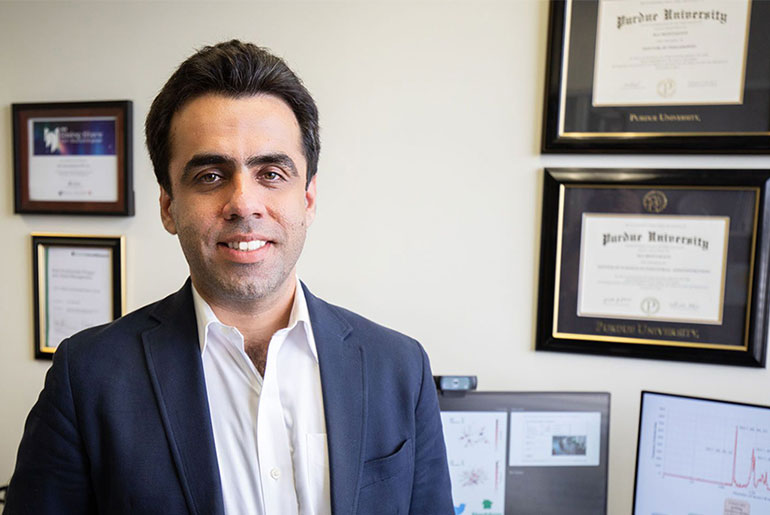
Dr. Ali Mostafavi, an assistant professor in the Zachry Department of Civil Engineering, recently received the Faculty Early Career Development (CAREER) Award from the National Science Foundation (NSF) — one of the most prestigious awards for up-and-coming researchers. The award provides funding to support promising integrated research and education.
Mostafavi will use the CAREER award to study the impact of infrastructure failures during natural disasters on people. His research recognizes that disasters do not impact people equally due to the variance in vulnerability among a region’s population. He hypothesizes that there is a disparity in the impact of risk and his research aims to increase the theoretical and empirical foundations in the interdisciplinary area of urban resilience research.
His NSF CAREER project will use machine learning, social sensing and complex networks simulation to analyze people’s responses to infrastructure disruptions following disasters such as Hurricane Harvey. Newly developed computational simulations models will allow researchers to assess the predicted societal impacts alongside existing system failure models, which will advance fundamental knowledge of urban resilience to inform policy decisions. The computer models will even be applicable to engineers and infrastructure managers prioritizing resilience investments in preparation for different types of disasters, such as flooding, wildfires and earthquakes.
Mostafavi’s research will have a positive impact on future engineers as well. He currently teaches his students the “Human-Centered Approach,” which emphasizes the need to consider human dimensions when designing and updating civil engineering systems. Student participants in his newly developed service learning project will engage with households from Harris County and learn how to prioritize the reduction of human suffering in vulnerable populations through community engagement. Learning modules will be shared with faculty across the nation to magnify the impact of these new frameworks. The knowledge will also be shared with organizations tasked with both disaster resilience and optimizing the prevention of future failures both at the state and the national level.
“We are trying to advance convergence research in the interdisciplinary field of disaster resilience in my lab and this project reflects the novel convergence of different interdisciplinary methods, data and theoretical elements to uncover social inequalities in risks due to the interplay between physical infrastructure and household social networks in disasters,” he said.
Read his NSF abstract.
